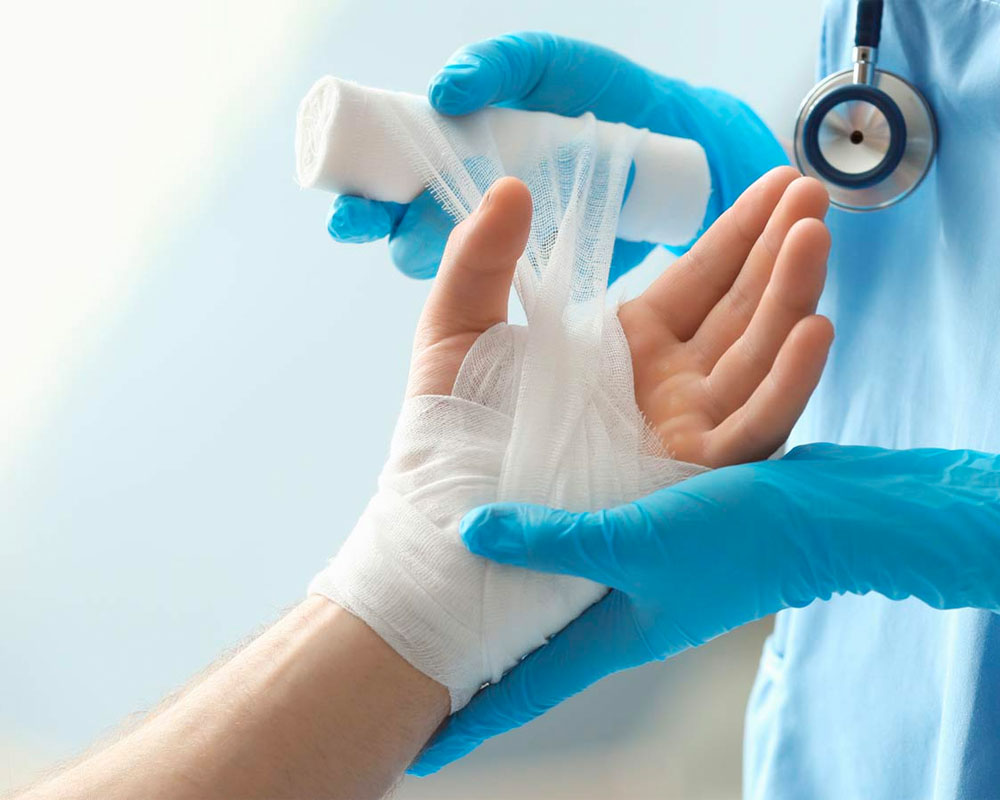
What To Do If You Burns And When To Seek Care
Burns definition
Burns can be minor medical problems or life- threatening emergencies. Sunburns and small scalds can usually be treated at home, but deep or widespread burns need immediate medical attention, skin grafts may be necessary to cover large wounds. Burns can leave skin vulnerable to bacterial infection and increase your risk of Sepsis, a life-threatening infection that travels through your bloodstream and affects your whole body.

Symptoms
Distinguishing a minor burn from a more serious burn involves determining the degree of damage to the tissues of the body. The following are four classifications of burns:
- First-degree burn. This minor burn affects only the outer layer of the skin (epidermis). It causes redness and pain and usually resolves with first-aid measures within several days to a week. Sunburn is a classic example.
- Second-degree burn. These burns affect both the epidermis and the second layer of skin (dermis), causing redness, pain and swelling. A second-degree burn often looks wet or moist. Blisters may develop and pain can be severe. Deep second- degree burns can cause scarring.
- Third-degree burn. Burns that reach into the fat layer beneath the dermis are called third-degree burns. The skin may appear stiff, waxy white, leathery or tan. Third- degree burns can destroy nerves, causing numbness.
- Fourth-degree burn. The most severe form of burn affects structures well beyond the skin, such as muscle and bones. The skin may appear blackened or charred. If nerve damage is substantial, you may feel no pain at all.
Burn Treatment

- For most burns, the very first thing to do is to flood the injury with cool tap water. Ice is not recommended because it can cause additional damage to the burned tissue.
- No ointments, butter, or oil-based products should be applied to the burned area as these can trap heat in affected areas and allow further tissue damage.
- The damaged skin should not be picked at or peeled, as this can increase scarring and the risk of infection.
- When to see a doctor:
While minor burns can be cared for at home, call your doctor if you experience: Increased pain, swelling, redness discharge in the burned area. A burn that doesn’t heal in several weeks. New, unexplained symptoms Seek emergency medical assistance for:
– Burns that cover the hands, feet, face, groin, buttocks or a major joint.
– Chemical or electrical burns Third- or fourth-degree burns Difficulty breathing or burns to the airway.

Nutrition
- Vitamin C, zinc, and copper help burns heal.
- Vitamin E, vitamin D and selenium are antioxidants. They help to reduce the body’s stress response after an injury.
- Protein, Zinc help to prevent and treat infections.
- High Protein and Calorie Drinks.
Burn wound care
- Boost collagen synthesis – collagen is absolutely necessary to any burn wound healing process.
- Moisturize daily – Since open wounds can quickly become infected with bacteria, it’s essential to apply the right type of non – perfumed water-based moisturizer or cream on your burn every day.




